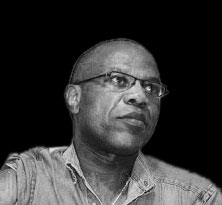Covid-19 was the second pandemic of the decade for Liberia, which was devastated by Ebola just five years ago. A US-trained public health officer who served in both emergencies explains how some institutional knowledge was carried over, as well as how the virus entered the country despite considerable precautions.
The moment we heard that there was this new disease in China, we knew there was no chance that we wouldn’t get the disease in Liberia. The question was just: When is it coming? So we had to prepare.
82
Covid deaths as of August 19, 2020. Source: WHO Dashboard
In January, Liberia became one of the first countries in the world to start screening for covid-19 at airports, based on our experience from Ebola and our understanding that our health system would not be as strong as anticipated. Those coming from a highly infected country at that time (anywhere with over 200 recorded cases) would have to be quarantined in our Precautionary Observation Center for 14 days upon arrival in the country. These were in hotels, and we monitored the travelers two to three times a day.


ZOOM DOSSO/AFP VIA GETTY IMAGES
Our initial strategy was to prevent covid from coming into Liberia. We knew that it would have to come through the airport. So we thought, if we can proactively get somebody who comes in from a high-risk area and quickly isolate them, and if they come down with the virus, we can quickly get their sample and get it tested. And if it were positive, you would not have to go through a major round of contact tracing, since this person was being isolated.
I have served in public health both during the Liberian Civil War and later during Hurricane Katrina in the US. I was the county health officer in Anson County, North Carolina. I learned a lot about disaster preparedness when I went to help out in Louisiana.
During the Ebola crisis [of 2014-2015] in Liberia, I was the deputy incident manager, in charge of medical response and planning. Once covid-19 arrived, we started immediately to put the lessons we’d learned from Ebola into practice, because people were still aware of them: basic preventive measures like handwashing and basic social distancing. But when people begin to realize that covid-19 is not as severe as Ebola was, doubts began to come in. Then the hoaxes began.
The biggest thing we are fighting is the idea that the coronavirus is not real, that the government and inter- national organizations are doing this to make money for themselves.
A business can develop in many ways. One of the best ways to grow your…
American families are once again juggling the seasonal custom—and financial burden—of back-to-school shopping as the…
Want to bond over unexpected activities? Look at these unconventional ways to connect with your…
Burnout isn’t just something that happens to CEOs. For moms homeschooling littles, it’s a very…
When it comes to long-distance motorcycling, comfort, reliability, and smart engineering can make or break…
Flowers have seen significant transformation over time; online flower shopping is increasingly common now for…